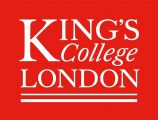
King’s College London’s Faculty of Social Science and Public Policy strives to diversify and attract top talent
The Faculty of Social Science and Public Policy (SSPP) at King’s College London is focused on supporting career pathways for women, especially in early to mid-career. King’s was ranked 14th in the 2022 Stonewall Top 100 Employers list, based on the Workplace Equality Index, and was the second university on the list. By recognising that the gender pay gap exists, the college has worked to reduce the disparity for the third year running, achieving one of the lowest gender pay gaps in the sector at 14 per cent.
“We need to make sure we represent society as a whole,” says Linda McKie, executive dean at the SSPP. “All too often, policy is developed by people who tend to have similar origins and experiences, with limited knowledge of the lives of many in the UK and beyond. To address society’s problems we need to embrace the best talent that we can recruit and ensure a positive working environment for all”.
The faculty and college are working hard to ensure that their researchers represent a diversity of scholars so that their ideas and viewpoints can shape solutions to the world’s problems.
The SSPP is one of the largest and most diverse social research and education communities in Europe. Its areas of research and teaching range from politics, economics, global health and medicine, war, defence and applied security studies, to inequalities in education and social justice. The SSPP’s Policy Institute has a “wide reach across government and the public sector, focused on solutions and the way in which research can create a practical and lasting impact”, McKie says.
The SSPP’s School of Global Affairs includes institutes dedicated to the study of India, Brazil, China and Australia, as well as the African Leadership Centre. Meanwhile, its School of Politics and Economics includes its Russia Institute and departments dedicated to the political economy, and European and international studies.
In light of Russia’s invasion of Ukraine, “my colleagues have been commenting in the media on the situation in Ukraine lately, and two-to-one, they are men”, says McKie. Of course, notable contributions have been made by women and black academics, with the SSPP working hard to support diverse career development.
In some areas – for example, politics and economics – the struggle is to attract staff from diverse backgrounds. The SSPP Equality, Diversity and Inclusion Committee, which was formed two years ago, includes representation from across the faculty. The committee is working on a range of practical projects to enhance recruitment and retention, address bullying and harassment, promote decolonisation and BAME attainment, improve access and address disability issues, with the aim to ensure an inclusive culture is evident in all aspects of its practices.
While the faculty has a high proportion of female students and staff, senior positions at chair level and above are still importunately held by men, McKie says. “We are actively supporting career pathways for women and BAME colleagues,” she says. “We need diverse voices and experiences in research and conversations for solutions.”
We are working to ensure equality, diversity and inclusion is not a one-off exercise. It requires constant engagement, she says.
McKie would like to see more women in leadership roles across her faculty. Asked if more women should be encouraged to apply for these positions, she says that the onus sits with institutions rather than on individual women. “I would like to call on universities and senior people in universities to make that environment possible,” she says.
Find out more about the Faculty of Social Science and Public Policy at King’s College London.






